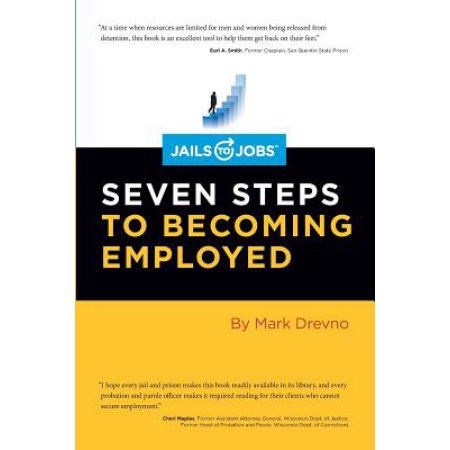Mark Drevno couldn’t agree more with Sister Mary Sean Hodges and her PREP coworkers about how difficult it is for men and women coming out of prison to find decent, stable employment. It’s why he founded “Jails to Jobs.” And it’s why he wrote “Seven Steps to Becoming Employed,” published in 2014.
“It’s all about the job search,” he told me. “It’s scary and it’s lonely — not only for those just out of prison, but for workers who just got laid off and those still looking for a job after three, four, five years.”
But in workshops with soon-to-be-released inmates in California’s jails and prisons, he puts a positive twist on the dreaded experience.
“Searching for a new job can actually be a gift and an opportunity,” he said. “It’s not about what sort of scraps are left for me. It’s about ‘What do I really want to do?’”
He advises inmates when they get out to go to the nearest Labor Department American Job Center and take an “interest inventory” about what lines of work they’d really like to be in. The results might be surprising.
Then find out all you can about that business or nonprofit field. But definitely skip over applying for a position through any HR (human resources) office. Instead seek out the manager of the department you want to work in, the person who does the actual hiring. It might be a warehouse manager or the supervisor of an accounting firm. “That’s the person you want to get on their radar,” he said.
Next call or email that individual directly. Better yet, just approach him or her at the work site. “It’s all about trying to get contact with the person who has the authority to hire you,” he pointed out. “So it’s a proactive job search instead of waiting for job postings.”
For ex-offenders, the next step is the most crucial. How are you going to talk to this hiring manager about your incarceration? The last thing you want to happen is for supervisors to discover it before you tell them. And most employers do background checks today because they’re so cheap.
Drevno calls it the “turnaround talk.”
“What you’re trying to show that employer is through being incarcerated, you’ve been rehabilitated,” he explained. “What happened in the past is not going to happen again. You actually learned a lot in prison. You learned how to get along with other people, how to show up on time to do your assigned job. And, of course, you learned a lot about yourself.
“But you don’t want to take too long talking about it,” he added. “You don’t want to use any charged words. So you want to be succinct and candid. This is why it’s better to just show up.”
Concerning the job application, he says the best case is to fill it out before you go into the interview, leaving the box about being in prison or on parole blank. Put a posted note on it saying, “Will explain during interview.”
And Drevno has one final piece of advice for ex-offenders seeking work.
“It’s definitely going to be more of a challenge for you to get a job if you’ve been incarcerated,” he said. “But that’s the deal! You know that. So if you know that going in, you’ve got to accept the fact that ‘I’ve got to work harder at this.’”
This article was originally publishhed as a companion to this longer article: Getting Out: For felons — especially ‘lifers’ who have served decades-long sentences — it’s nearly impossible to find sustaining work in Los Angeles

